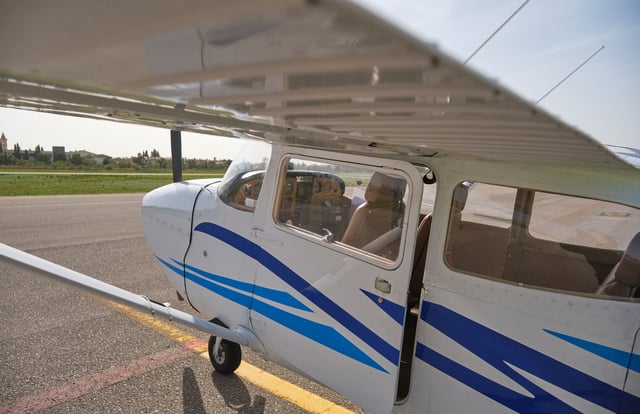
Many people are not satisfied with the first flight school they attend. It may be because of location, the instructors, the quality of the curriculum, or a myriad of other reasons. Whatever the reason, flight school is a serious undertaking and you should be satisfied with the one you attend. There is really only one option if you are unhappy with your school, and that is to transfer.
Do Flight Schools Accept Transfers?
Fortunately, most flight schools do accept transfer students. However, this should not be done on a whim. You should be certain that you want to leave your original flight school. You should also put a lot of thought into choosing your new school. You do not want to end up at another school that doesn’t meet your expectations. It should be noted that while most schools will accept transfers, their policies on transferring flight hours may vary.
Determine How Much Training You Still Need
Before beginning the transfer process, you will need to know exactly where you are at in your training. This means collecting your transcript, logbook, and other documentation. Any new school you apply to will need the information provided by these documents. It will help them determine which classes to place you in and how many flight hours you still need to complete your training. Generally, the earlier in your training you transfer, the better. However, you can transfer at any time in your training. You just may need to repeat more classes.
Questions to Ask Your New Flight School
Before committing to your new flight school, there are certain questions you will want to ask in order to ensure it is a good fit. These questions include:
● What programs do you offer? Specifically, ask if they offer part 61 or part 141 programs.
● Will you accept all of my flight hours or will I lose some?
● Will you give me credit for all of the classes I’ve already taken or will I have to retake some?
● Are you accredited? If so, by which institutions?
● Do you have partnerships with any airlines?
● Do you offer any resources to help students find employment after graduation?
The answers to these questions will help give you an idea of whether or not this new flight school is right for you. Be sure to take notes on their answers. This can be helpful if you’re considering multiple flight schools.
The Benefits of an Accredited Flight School
You should really only be considering an accredited flight school. Attending one of these institutions provides you with a number of benefits, including:
● Structured Curriculum: Accredited flight schools follow a structured curriculum that resembles a university program. This ensures a consistent and comprehensive learning experience.
● Experienced Instructors: Accredited schools typically employ highly qualified and experienced certified flight instructors (CFIs). They often bring real-world expertise to the training process and know how to turn students into successful pilots.
● Advanced Equipment: Accredited schools often use state-of-the-art equipment. This includes advanced flight simulators and a high-quality fleet of aircraft, enhancing the learning experience and quality of education.
● Industry Connections: Accredited schools will usually have established relationships with airlines and other aviation companies. This gives you better access to career opportunities.
● Enhanced Recognition: Employers prefer to hire pilots from accredited schools, as it shows the graduate has met the higher standards of these institutions.
With all of these benefits, it is clear that an accredited school is the best choice for those who are serious about becoming pilots. You should look for schools that are accredited by the FAA or another respected institution, such as the Accrediting Council for Continuing Education & Training (ACCET). Attending one of these schools can make all the difference.
How Career Opportunities Work Post-Flight School
Once you’ve completed flight school, it is time to begin your career. If you attend the right flight school, this should be relatively easy. Your first job will likely be as a certified flight instructor, teaching students how to fly. This will allow you to build up the required hours to begin applying to other jobs, such as cargo or airline pilot. Just remember your training, keep flying, and your career will soar.
Disclaimer
The information contained in South Florida Reporter is for general information purposes only.
The South Florida Reporter assumes no responsibility for errors or omissions in the contents of the Service.
In no event shall the South Florida Reporter be liable for any special, direct, indirect, consequential, or incidental damages or any damages whatsoever, whether in an action of contract, negligence or other tort, arising out of or in connection with the use of the Service or the contents of the Service. The Company reserves the right to make additions, deletions, or modifications to the contents of the Service at any time without prior notice.
The Company does not warrant that the Service is free of viruses or other harmful components












